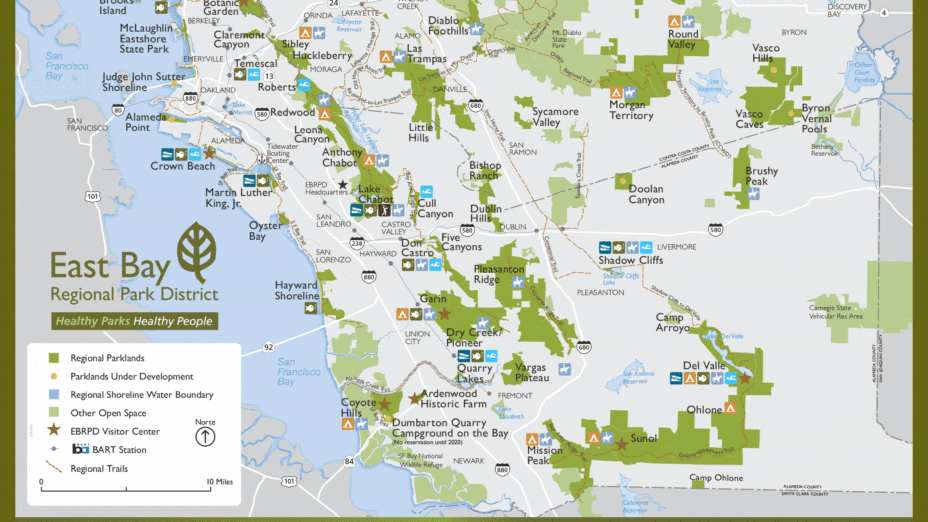
By MARK DESAULNIER and GEORGE MILLER
During the current COVID-19 global pandemic, parks and open space areas providing safe places for outdoor activity are experiencing an unprecedented surge in visitation and impacts on facilities.
Take, for example, the East Bay Regional Park District, a system of 73 parks with 125,000 acres and 1,300 miles of trails. EBRPD’s pre-COVID visitation rate was 25 million a year. (For comparison, Disneyland had 18 million visits annually.) Since the shelter-in-place orders in March, the park district’s general manager estimates, the rate of trail use has doubled.
This surge in park visitors, which is being seen around the country, has an impact on infrastructure, natural resources, and the ability to manage the parks effectively for control of fire.
That’s why the federal government, now more than ever, needs to sufficiently fund maintenance of parks for current and future generations. And why members of Congress are backing legislation to provide that money.
Viewed through the lens of the current pandemic, parks and trails serve as a safe space for essential activity that contributes to both the psychological and physical health of residents. An EBRPD survey in May of residents of Alameda and Contra Costa counties proves just that:
- 96 percent of respondents say keeping regional parks and trails open during the pandemic has been important.
- 90 percent believe having access to regional parks and trails has been important to their health and well-being.
- 92 percent say the pandemic has had an impact on their mental health.
- 94 percent believe parks will play an equal or greater role when the pandemic is over.
Public investments in natural resources not only protect those parks so essential during the pandemic, they also provide jobs—particularly for young people—that are critical for our communities.
Fortunately, members of the U.S. Congress have proposed historic parks investments during this global health and economic crisis:
- The Great American Outdoors Act (H.R. 1957), which the House passed Wednesday, the Senate had previously passed, and is heading to the president for his signature. The bill would permanently allocate $900 million annually from federal oil and gas leases to the Land and Water Conservation Fund—and infuse $9.5 billion over five years to address maintenance needs on public lands.
- The Moving Forward Act (H.R. 2), an infrastructure package passed by the House on July 1 that invests $1.5 trillion in infrastructure, including shoreline restoration projects, transportation alternatives (such as paved trails), and recreational trail funding.
- The Special Districts Provide Essential Service Act (H.R. 7073), which emphasizes the need for special districts—local units of government providing specific services such as parks, hospitals, fire, water, and sanitation—to be eligible for future COVID-19 emergency funding aimed at assisting local governments.
- The 21st Century Conservation Corps for Our Health and Our Jobs Act (S. 3684), which renews the call for national service to invest billions into job creation—particularly for young people challenged to find work at this time—for the psychological and physical health of our communities.
Rep. Mark DeSaulnier, D-Concord, currently represents most of Contra Costa County. He succeeded George Miller, who retired in 2015 after serving in Congress for 40 years.

